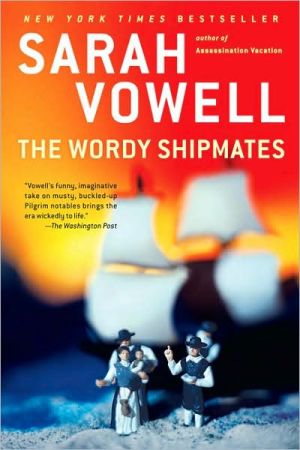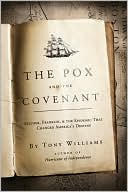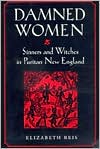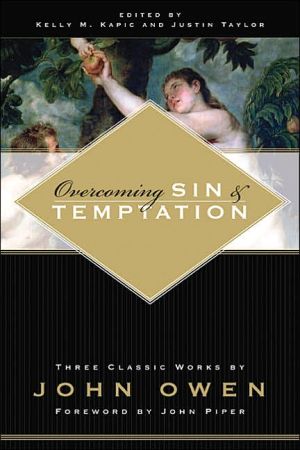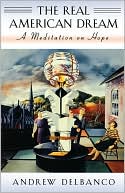The Wordy Shipmates
In this New York Times bestseller, the author of Assassination Vacation "brings the [Puritan] era wickedly to life" (Washington Post).\ To this day, America views itself as a Puritan nation, but Sarah Vowell investigates what that means-and what it should mean. What she discovers is something far different from what their uptight shoebuckles- and-corn reputation might suggest-a highly literate, deeply principled, and surprisingly feisty people, whose story is filled with pamphlet feuds, witty...
Search in google:
The Wordy Shipmates is New York Times—bestselling author Sarah Vowell's exploration of the Puritans and their journey to America to become the people of John Winthrop's “city upon a hill”—a shining example, a “city that cannot be hid.”To this day, America views itself as a Puritan nation, but Vowell investigates what that means— and what it should mean. What was this great political enterprise all about? Who were these people who are considered the philosophical, spiritual, and moral ancestors of our nation? What Vowell discovers is something far different from what their uptight shoe-buckles-and- corn reputation might suggest. The people she finds are highly literate, deeply principled, and surprisingly feisty. Their story is filled with pamphlet feuds, witty courtroom dramas, and bloody vengeance. Along the way she asks:• Was Massachusetts Bay Colony governor John Winthrop a communitarian, a Christlike Christian, or conformity's tyrannical enforcer? Answer: Yes!• Was Rhode Island's architect, Roger Williams, America's founding freak or the father of the First Amendment? Same difference.• What does it take to get that jezebel Anne Hutchinson to shut up? A hatchet.• What was the Puritans' pet name for the Pope? The Great Whore of Babylon.Sarah Vowell's special brand of armchair history makes the bizarre and esoteric fascinatingly relevant and fun. She takes us from the modern-day reenactment of an Indian massacre to the Mohegan Sun casino, from old-timey Puritan poetry, where “righteousness” is rhymed with “wilderness,” to a Mayflower-themed waterslide. Throughout, The Wordy Shipmates is rich in historical fact, humorous insight, and social commentary by one of America's most celebrated voices. Thou shalt enjoy it. The Barnes & Noble Review Unsure whether you should invest in Sarah Vowell's The Wordy Shipmates? Take a brief quiz to find out. Does seeing the run-up to the Pequot War likened to the "irrational frustration that makes [skateboarders] occasionally break their own skateboards in half" illuminate that 17th-century conflict for you? Does thinking of dissident religious leader Anne Hutchinson as "the Puritan Oprah" help you grasp her role in the American Colonies? Does being reminded of the Happy Days Thanksgiving episode in which the cast was clad in Pilgrim garb and Fonzie said things like "greetethamundo" make you chuckle with nostalgia?
\ Stephen ProtheroOn first blush Vowell seems like an angry atheist set down at the historian's table. But under this anger is a good measure of empathy. Hers is not the narrative of an angry adolescent who never wants to return to her Pentecostal parents' home. It is the narrative of an adult who wants to see her American home for what it is—and for what it has done to her, and to us…what makes The Wordy Shipmates float is not so much its arguments as its voice. Most writing on the Puritans is as dour as the Puritans themselves. Vowell has fun with them, and in the process, she helps us take seriously both their lives and their legacy.\ —The Washington Post\ \ \ \ \ Publishers WeeklyVowell’s account of the post-Mayflower Puritans of New England and their influence on contemporary American culture over the centuries is thoroughly enjoyable in print. But hearing her ironic but passionate little-girl voice making history accessible and providing humorous and often trenchant present-day asides, as she did on NPR’s This American Life, is even better. In addition to fleshing out history with extensive quotes from journals and other documents of the time, Vowell has assembled a sizable cast of co-readers, including Eric Bogosian, Peter Dinklage, Jill Clayburgh, Campbell Scott and Dermot Mulroney. Some narrators feel like stunt casting, although there’s a lovely cameo by Catherine Keener, whose calm, self-contained voice is perfect for Anne Hutchinson on trial. Vowell and company (aided by Michael Giacchino’s musical score) make for pleasurable listening. A Riverhead hardcover (Reviews, July 28). (Oct.)\ Copyright © Reed Business Information, a division of Reed Elsevier Inc. All rights reserved.\ \ \ Kirkus ReviewsNPR contributor Vowell (Assassination Vacation, 2005, etc.) takes a hard but affectionate look at the legacy of those doughty, slightly deranged Puritans who landed in the New World in 1630. Fans will be pleased to see that Vowell's admittedly smart-alecky style is alive and well: It's not every historical monograph that tosses together Anne Hutchinson and Nancy Drew, Dolly Parton and John Endecott. The author's characteristic devotion to detail is also evident. Previously she was obsessed with America's political assassinations; here she pores over the texts-the many texts-of the principals who interest her: John Cotton, John Winthrop and Roger Williams, in addition to the aforementioned Hutchinson and Endecott. She likes to visit the places most relevant to her subjects too; we learn, for instance, that a Boston jewelry store now occupies the site where Mistress Anne's house once stood. Vowell examines what she sees as the cascading effects of the Puritans' arrival, drawing a straight line from Massachusetts Bay to Abu Ghraib. She continually bashes the current President Bush, points out the tarnish that others seem to ignore on the well-burnished image of President Reagan (who patently lied about Iran-Contra) and ends with a paean to JFK. This approach can be jarring, as the author yanks readers back and forth between recent and colonial history from Charlie's Angels to the Visible Saints. Still, she dives into dense Puritan sermons and self-flagellating journal entries to emerge, generally, with a bit of truth. She chides us for careless use of the word Puritan and disdain for public intellectuals. "The downside of democracy, she finds, is "a suspicion of people who know what they aretalking about." In the end, she admires Winthrop's surprising tenderness, Hutchinson's chatterbox courage. At times dense, at times silly, at times surpassingly wise. Agent: Jaime Wolf/Pelosi Wolf Effron & Spates\ \ \ \ \ The Barnes & Noble ReviewUnsure whether you should invest in Sarah Vowell's The Wordy Shipmates? Take a brief quiz to find out. Does seeing the run-up to the Pequot War likened to the "irrational frustration that makes [skateboarders] occasionally break their own skateboards in half" illuminate that 17th-century conflict for you? Does thinking of dissident religious leader Anne Hutchinson as "the Puritan Oprah" help you grasp her role in the American Colonies? Does being reminded of the Happy Days Thanksgiving episode in which the cast was clad in Pilgrim garb and Fonzie said things like "greetethamundo" make you chuckle with nostalgia? \ If you answered these questions in the affirmative, then by all means give Shipmates a go. This is not history in the strictest sense but rather a series of funny, chatty historical musings, lacking chapter breaks and any clear chronology. This isn't to say that readers who prefer their early American history free of Brady Bunch references won't find anything of substance here. The book is smart and engaging, and it even has a unifying theme -- that the Puritans who settled the Massachusetts Bay Colony are misunderstood today, despite their persistent influence on American ideology -- though Vowell, author and frequent contributor to public radio's This American Life, is happy to wander from it when it suits her.\ In focusing on the Puritans who set sail for the New World on the Arbella in 1630, as opposed to the more famous Mayflower Pilgrims of the previous decade, Vowell intends to rehabilitate the image of the less celebrated group. "I'm always disappointed when I see the word 'Puritan' tossed around as shorthand for a bunch of generic, boring, stupid, judgmental killjoys," she writes. "Because to me, they are very specific, fascinating, sometimes brilliant, judgmental killjoys who rarely agreed on anything except that Catholics are going to hell."\ The most well-known members of her gang include Massachusetts Bay Colony governor John Winthrop; minister John Cotton; Roger Williams, who was banished from Massachusetts for, among other radical opinions, his belief in the separation of church and state (he eventually founded a settlement in Rhode Island); and Hutchinson, who was also banished from Massachusetts for unorthodox views, joining Williams in what Vowell calls "madcap" Rhode Island.\ "The most important reason I am concentrating on Winthrop and his shipmates in the 1630s is that the country I live in is haunted by the Puritans' vision of themselves as God's chosen people, as a beacon of righteousness that all others are to admire," Vowell writes. She cites Winthrop's sermon "A Model of Christian Charity," in which he urges the colonists to be "as a city upon a hill." Today, of course, that phrase is more strongly associated with Ronald Reagan. "Talking about Winthrop's [sermon] without discussing Ronald Reagan would be like mentioning Dolly Parton's 'I Will Always Love You' and pretending Whitney Houston doesn't exist," Vowell observes.\ Vowell's thoughtful critique of American exceptionalism measures Winthrop's city on a hill against Reagan's. Whereas the Puritans' hopes for their New World settlement were invested with a grave humility, Reagan's frequent use of the term, embellished with the adjective "shining," came to denote a reflexive patriotism and stubborn optimism that refused to acknowledge many of the problems tarnishing the shining city -- homelessness, poverty, AIDS -- during his administration. "At least the arrogant ballyhoo that New England is special and chosen by God is tempered by the self-loathing Puritans' sense of reckoning," Vowell notes. "From New England's Puritans we inherited the idea that America is blessed and ordained by God above all nations, but lost the fear of wrath and retribution."\ With incisive analysis and sharp wit, Vowell traces a straight line from the Puritans' sense of mission (which had devastating consequences for Native American populations) to the war in Iraq, which "temporarily unites even some...Sunni and Shia Muslims, who hate each others' guts but agree they hate the bully America more." Shipmates had already gone to press by the time Sarah Palin exploded onto the national stage and helped make Vowell's point. During her debate with Joe Biden, the vice-presidential candidate said, "And we are to be that shining city on a hill, as President Reagan so beautifully said, that we are a beacon of hope and that we are unapologetic here." The repentance-happy Puritans, Vowell reminds us, were anything but unapologetic.\ As with much of Vowell's output (see 2005's Assassination Vacation, in which she travels the country touring spots related to the murders of Presidents Lincoln, Garfield, and McKinley), Shipmates is as much about the author's journey as her destination. We read about her visit with her sister and young nephew to Plymouth, where a replica of the Mayflower, complete with waterslide and hot tub, leads her to muse that perhaps the Arbella Puritans are fortunate to have been "spared the indignity of fame." She describes her conversation with a Boston taxi driver as she visits sites related to her research. And reading Winthrop's journal at the Massachusetts Historical Society, she writes, "I don't think Winthrop was any more nervous leaving England than I was leafing through such a brittle, wrinkly, nearly four-hundred-year-old book."\ But her unique style still manages to function like history at its best, insisting upon the profound relevance of our past to our present. The connections she makes are not only cautionary but occasionally uplifting as well. In another passage from his "Christian Charity" sermon, Winthrop said to his fellow Puritans, "We must delight in each other, make others' conditions our own, rejoice together, mourn together, labor and suffer together, always having before our eyes...our community as members of the same body." Vowell writes movingly of finding comfort in these words in the days after the September 11th terrorist attacks: "When we were mourning together, when we were suffering together, I often thought of what he said and finally understood what he meant."\ But that moment of earnest reflection is fleeting, which might be welcome news to those readers who prefer their Vowell smart-alecky. A few pages away she calls speculation by historians that Winthrop's sermon was delivered on the same occasion as Cotton's "God's Promise to His Plantation" sermon -- the "double-bill equivalent of this one time in Dublin I saw the Breeders open for Nirvana." --Barbara Spindel\ Barbara Spindel has covered books for Time Out New York, Newsweek.com, Details, and Spin. She holds a Ph.D. in American Studies.\ \ \
